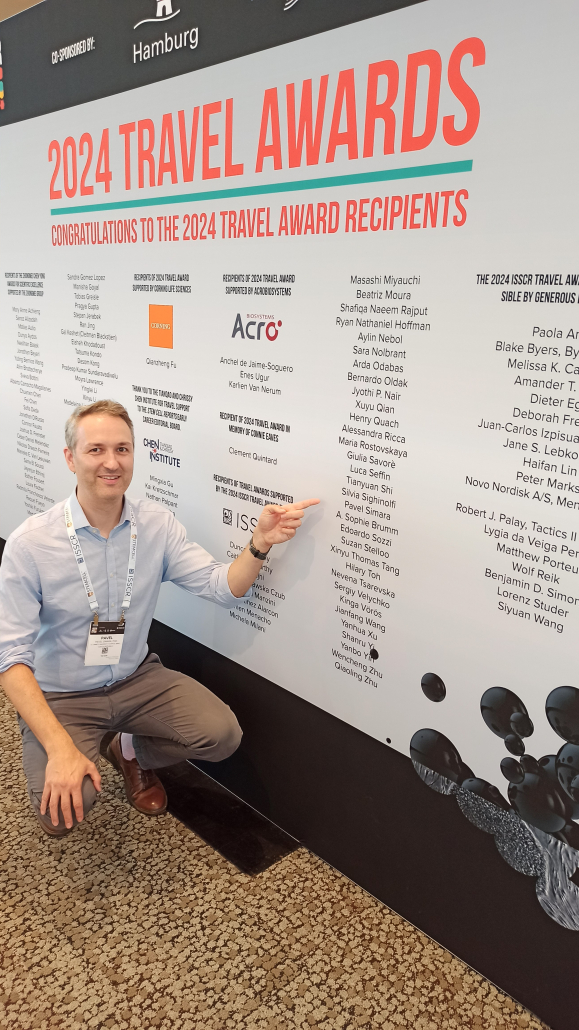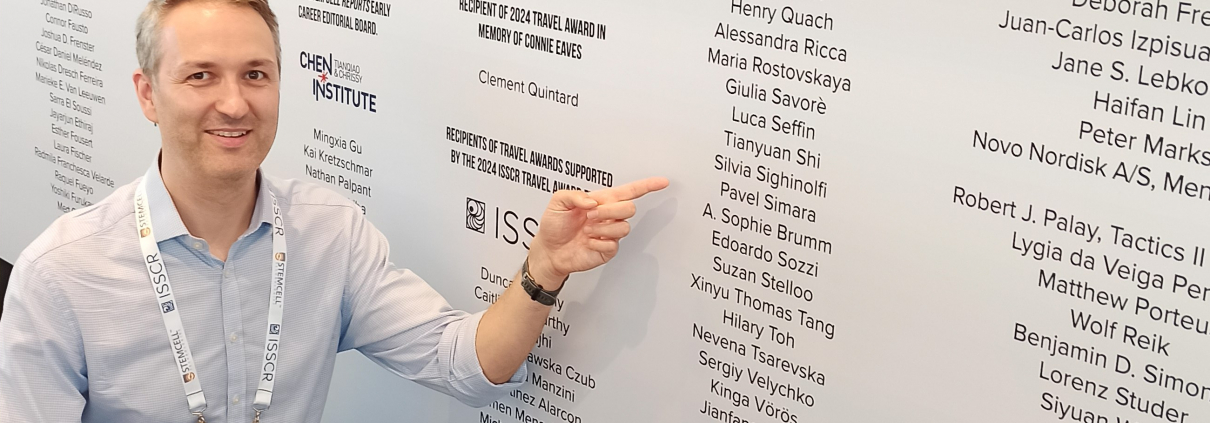Scientists from ICRC presented their stem cell research in Hamburg at the ISSCR, researcher Pavel Šimara was awarded
Researchers from the International Clinical Research Center (ICRC) traveled to present their research results at the annual conference of the International Society for Stem Cell Research (ISSCR) in Hamburg, Germany. The work of one of our scientists, Pavel Šimara, focused on the mechanosensitivity of ribonucleoproteins and their impact on the heterogeneity of pluripotent stem cell colonies, received an award from the expert committee.

The annual conference of the International Society for Stem Cell Research (ISSCR), founded in 2002, was held this year in Hamburg, a Hanseatic city of commerce, red bricks, and ubiquitous cyclists.
Among more than three thousand scientists at the conference, the ICRC, a joint workplace of St. Anne’s University Hospital and the Faculty of Medicine of Masaryk University, was represented by Pavel Šimara and Vladimír Vinarský from the Mechanobiology of Disease team of the Center for Translational Medicine, and Tereza Souralová from the Center for Cell and Tissue Engineering. Their contributions focused on the impact of mechanical stimuli on the properties of mRNA in stem cells, the maturation of cardiomyocytes, and the quality control of retinal pigment cells derived from stem cells.
For the first time this year, the program included a section dedicated to mechanobiology. This step reflects the growing awareness within the scientific community of the importance of mechanical signaling for proper cell function and the impact of mechanical stress on DNA damage. The quality of Pavel Šimara’s work impressed the scientific committee so much that it was selected among the top forty for a travel grant award from over 1500 submitted abstracts (2024 Travel Awards). Congratulations to the entire ICRC!
Stem cells not only help understand the molecular mechanisms of organism development and diseases but are also the future source of cellular material for transplants. An example was the presentation of a patient diagnosed with Parkinson’s disease at the age of forty. ‘Thanks to the transplantation of neurons, he is now able not only to take care of himself but also to work part-time. It’s hard to find a better example that the hours spent in the lab are worthwhile,’ said the awarded scientist Pavel Šimara.




